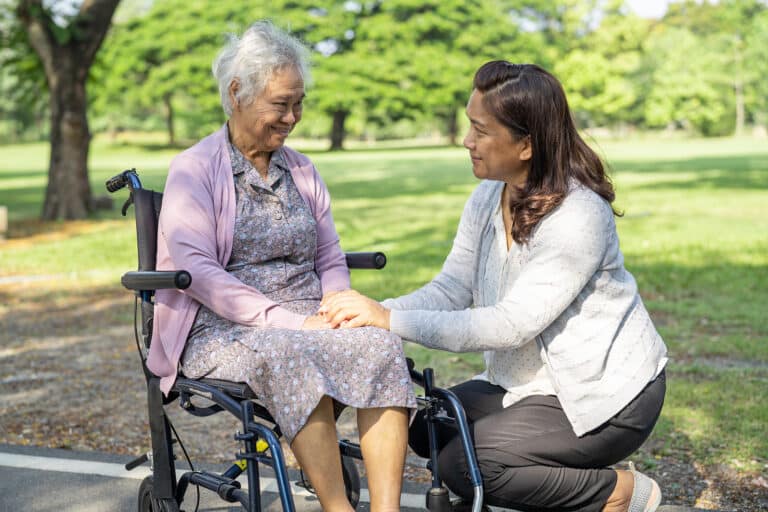Caring for somebody with Alzheimer’s is difficult. It doesn’t matter the kind of relationship you have with this individual, whether it’s your mother or father, spouse, or good friend. It’s going to take a toll. It can be exhausting.
When you’re a caregiver for somebody diagnosed with Alzheimer’s, you need to understand a few critical aspects. Too many people take on this incredibly important job without any prior experience, knowledge, or foresight. Below are three Alzheimer’s care tips that everyone should understand when they set out to care for somebody with Alzheimer’s.
Alzheimer’s is a Progressive Disease
What does that mean? The signs and symptoms of Alzheimer’s will get tougher. The memory loss will expand. There will come a time, most likely, when that senior with Alzheimer’s will face increasing health issues as well.
You can’t become complacent or assume things are as bad as they are going to get at any stage of the game. They can get tougher. That means not only will the senior require more care support, but you might, too.
Also, because it is a progressive disease, you need to have the right elder care options available and be ready to turn to them when you need. Far too many family caregivers wait too long before they look into elder care, most notably in-home care support services.
Establishing Routines
Even if the senior had developed certain routines in life, like waking up at 5:30 in the morning, taking a quick shower, brushing their teeth, and grabbing coffee before sitting and reading the newspaper out on the front porch, routines are going to be helpful. It may be necessary to establish new routines or adjust old ones to the new way of life.
For example, a senior might wake up confused, not knowing where he or she is, and then what? What will they do if nobody is around to support him or her?
Might they get in the car to go to the local deli and completely forget where they are. It’s possible. However, if you establish a routine that might wake them up later or have them waiting for somebody at 7 o’clock in the morning, for example, it could help them feel more comfortable in their situation.
It’s also a good idea to avoid having too much to do in the evening hours. Too many things going on later in the day can lead to Sundowner’s syndrome, which can lead to verbal and physical aggression, which is something you want to avoid, if at all possible.
Even Gentle People May Become Aggressive
You might be supporting your elderly mother who never had a nasty thing to say to anyone, even when she had every right to be upset. Yet, Alzheimer’s is a fierce beast. It can change anyone’s demeanour as it progresses.
Don’t expect this senior to remain as docile as they were in their younger years. This doesn’t mean the senior is going to get aggressive, start yelling profanities, or saying or doing the most horrible things you can imagine. That might not happen. However, the first verbal or physical confrontation, such as being insulted, accused of stealing from them, being called names, or even having an object thrown at you, can unsettle and unnerve even the most hardened individuals.
Be prepared. Even though you may not fully understand what will happen in the future when it comes to Alzheimer’s, the more prepared you are with expectations and information, the better you’ll handle the circumstances as they arise.
If you or an ageing loved one are considering Alzheimer’s Care in St. Albert, please contact the caring staff at Serving Hands Senior Care today. Call (780) 963-1516
Premiere Home Health and Senior Home Care services in Spruce Grove, Stony Plain, Devon, St. Albert, Edmonton, Onoway, Leduc, Parkland County and surrounding communities since 2016.
- Getting Everything Done with Gentle Morning Routines - January 28, 2025
- Four Ways To Show Empathy Toward Someone With A Chronic Illness - December 21, 2024
- Encouraging Independence Through Alzheimer’s Home Care - December 6, 2024









